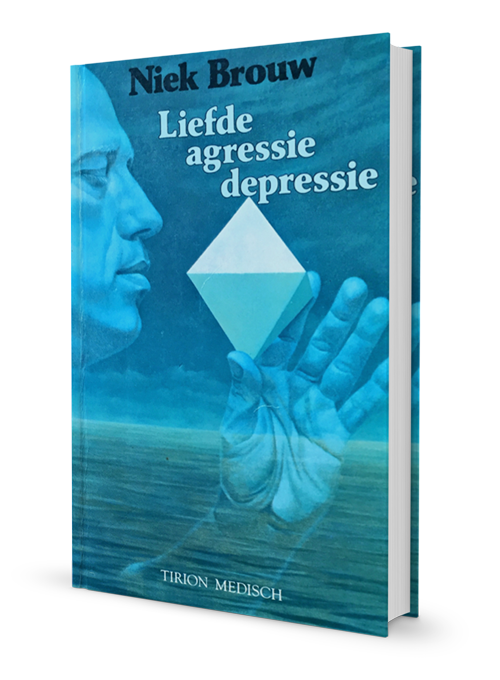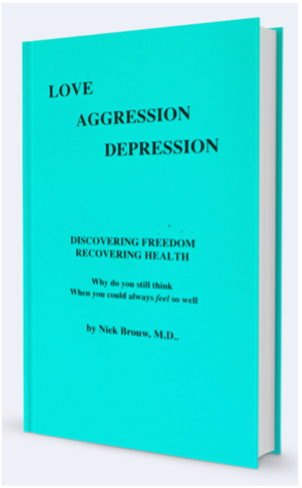Motor development Niek Brouw
Your physical development from conception is essential for your later physical and mental well-being.
The Niek Brouw Motor Skills Development Method is based on the natural development of the unique individual’s posture.
During the human body’s development, from conception to adulthood, constant changes occur.
The body of an embryo looks very different and has different perceptive capabilities than that of a foetus just before birth.
And even after birth, the body, and the associated growth potential change from baby to toddler to pre-schooler, elementary school child and adolescent until the body is fully grown and the person is an adult.
In other words, a different aspect of the physical body is formed in each phase. New muscle groups become active, and the changing interplay of muscles changes your posture and motor skills: the way you move and therefore also your expressive possibilities.
Every age has its own muscle development and experience.
For example: a baby should experience and get to know the world from its feelings. A baby has not yet developed back, arm and leg muscles; the abdominal muscles are at the forefront in this phase, and they are linked to perception from your feelings.
Since every person is unique, there is no standard posture nor any standard motor skills, but there is a posture and there are motor skills that suit the person in question, in their own unique way.
If development proceeds safely in all phases, as a human being you develop an optimally free body with optimal expressive possibilities in your inner world and the outside world.
If development proceeds unsafely and therefore unnaturally during one or more stages, limitations arise, which ultimately become visible in the posture. These limitations cause an emotional and physical imbalance and can lead to all kinds of complaints.
In the Niek Brouw Motor Skills Development Method, an imbalance can largely be traced back to disruptions to your healthy development.
These disruptions to your natural development can lead to physical complaints, but also cause a lack of freedom and limit your own expressive possibilities, which makes you vulnerable in the inner and outer world.
To “survive” we have to learn something to protect these vulnerabilities and inabilities.
An imbalance can manifest itself in various complaints. The complaints often come back because the different treatment methods often only look locally and only treat the symptoms.
The Niek Brouw Motor Skills Development Method looks at the whole person and not just at a local limitation.

You can read much more about balance, imbalance, muscles, and spine, among other things, in the book Love, Aggression, Depression.
Treatment method
Niek Brouw’s starting point is the unique person and the person in balance.
He has done a lot of comparative research. Based on this research, his own powers of observation and the integration of other views and disciplines, he has developed a practical preventive and curative treatment for everyone.
The motor development of the body can be imitated through specific exercises from the Niek Brouw Motor Development.
Through the relatively simple exercises you can quickly find out where you are creating too much or too little tension and where you have skipped something in your development.
Through this exercise method, we can optimise the posture of the body and thus give the less developed parts, your potential, the opportunity to continue to grow naturally.
The space it then gives you when you start to feel your own healthy posture and movement from within, gives the same space (i.e., freedom) in your mental, emotional world.
The Niek Brouw Motor Skills Development Method is based on “living life instead of just surviving it”.
The Niek Brouw Motor Skills Development Method is based on the body, with all the possibilities within it. Through a unique system of physical exercises, you shift the search for possibilities outside yourself to discovering the possibilities within yourself, or vice versa.
You can see a poetic illustration of this premise in the animation below, which is based on the book “The Missing Piece Meets The Big O” by Shel Silverstein.
You can find the therapists who work with the exercises of the Niek Brouw Motor Skills Development Method here.
A number of Niek Brouw paradigms
The MIND SPIRIT SOUL model
Mind: knowing/ to give form
Soul: content-related feeling
Spirit: spontaneity
These are the three human possibilities that you can experience in your inner world (your being) and can express in the outside world, in your actions (your behaviour).
These possibilities are linked to certain muscle systems in the body.
The freer these muscles are, the freer you are, the better your power of expression and the more you are in balance with yourself.
In the book Only a thief hides, Niek delves deeper into the mind, soul and spirit model.
The LOVE, AGGRESSION, DEPRESSION (LAD) model
L: Love
A: Aggression
D: Depression
These are the three human possibilities in the area of emotions. Love can also be defined as creativity, aggression as activity and depression as passive emotion.

In his book Love, Aggression, Depression, Niek discusses these three emotional possibilities in more detail.
Perception training
Every perception stimulates a cell response that changes your attitude. You are moved by a stimulus, or it brings you to a standstill.
In the books Love, Aggression, Depression and Only a thief hides, Niek delves deeper into perception training.
Dimensions
The various consciousnesses of man are linked to the stages of development of the physical body from fetus to adult.
In the book Only a thief hides, Niek goes into more detail about the dimensions.
Developmental disorders
In order to let all our possibilities grow, safety is a prerequisite at every stage of your development. A new-born needs a safe nest in which nutrition and touch are important for filling your emotional computer with sensory perceptions.
The elementary school is a building in the outside world that should be safe, with a trusted class and a trusted teacher. These safe conditions are a prerequisite for a child aged 6-12 to grow in knowledge and shaping.
During adolescence, we need a high school with fewer rules and more space, changes of classrooms and more responsibility in doing homework. These conditions are a prerequisite for optimal growth during puberty.
For a foetus, it is the womb that should provide safety, nourishment, and protection.
In the book Only a thief hides, Niek discusses the development of a fetus and safety in the womb in detail.
However, during your life you may experience events in your inner and/or outer world that limit and stagnate your normal development and growth. Examples are a divorce, a disease process you go through as a child, a death in the family, etc.
Niek Brouw has defined 3 developmental disorders, stagnations, namely shock, envy, and hunger. These mechanisms can be created by unsafe situations during your growth.
It is in your genes to grow and develop your potential.
We speak of shock when an unimaginable disruption to your reality occurs. In order to survive you will deny this potential within yourself. For example: if a child wants to sit and daydream in a corner to digest his emotional experiences but is constantly told to “go do something useful”, then over time the child will start to deny that he needs to daydream. That denial is the result of a shock.
Envy arises when you grant your environment power to give you everything you need and therefore also the power to withhold it.
There are then two mechanisms that arise: you either adore the person you think has the power or you start to vilify him. This mechanism can later express itself in, amongst other things, suspicion, a fear of abandonment and a fear of failure. These are all learned emotions in response to the power of the outside world.
In principle, hunger is not emotional. It is a free expression that indicates that you need energy to grow. Hunger does become emotional if it lasts too long and you become malnourished. If there is less food than necessary, you can deal with this in two ways. You can get angry, become rebellious, or you can become apathetic and wait. Both are unfree expressions. Later addictions to work, drugs, etc. lurk within these mechanisms. Addiction is actually doing something unnatural, creating an unfree expression, in order to let you supposedly feel natural. Instead of being allowed to be your nature, you need something from outside to feel your wholeness.


